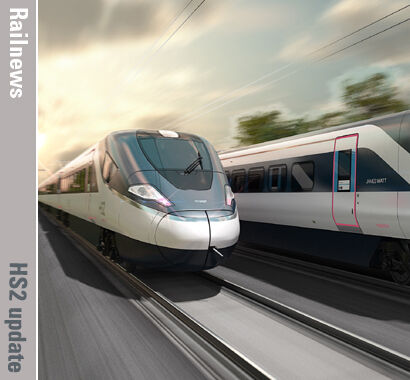HS2 minister Andrew Stephenson has assured MPs that HS2 'is going full steam ahead', although he made no comment about the future of the eastern leg, which some reports claim is being on the verge of being abandoned. Mr Stephenson was speaking at the end of a debate in Westminster Hall last night, which was prompted by a public petition calling for the complete project to be scrapped, and which was signed by more than 155,000 people.
Mr Stephenson continued: 'I know that HS2 is a project that inspires strong feelings on all sides, as all major infrastructure projects do. All right hon. and hon. Members present know that the Government carefully considered the merits of proceeding with HS2, which has almost certainly been subject to more parliamentary scrutiny than any other infrastructure project. Our firm conclusion was that HS2 should go ahead, and it is now progressing, as I have outlined. In setting out the decision to proceed, we made a clear commitment to draw a line under past problems. This is a once-in-a-generation major infrastructure project that will shape this country for well over 100 years.'
Earlier in the debate, a number of members had repeated their opposition to HS2. The Labour MP for Normanton, Pontefract and Castleford Yvette Cooper said: 'I am one of those who are deeply sceptical about the value for money of this project. I can think of considerable other ways to invest that money that would have a much stronger economic benefit. On the impact of the covid pandemic, has the Minister considered the long-term impact of the growing use of Zoom, electronic communications and so on? Surely any sensible Government would look at the impact of that on business travel [and] commuter travel.'
However, others disagreed. The Conservative member for High Peak Robert Largan said: ' HS2 is probably the most poorly explained and poorly understood policy in our national discourse. Over the past decade, a series of myths have been perpetuated about it, by a combination of muddled thinking and the efforts of well-funded self-interest groups. I therefore welcome this opportunity to address some of those myths head-on.
'HS2 has never been simply about shaving 30 minutes off journey times down to London. It has always been about tackling the capacity challenge on the country’s most important strategic railway, the west coast main line. If we were to cancel HS2 and do nothing, within a few years this most vital artery of our entire national railway network would quite simply grind to a halt, causing huge damage to our economy, especially in the north and midlands. I have seen many people claim that the internet and remote working will take care of this problem all by itself, ignoring the fact that—excluding the period of the pandemic—rail passenger figures have gone up in every single year since the internet was invented. They also ignore the issue of rail freight. I am all for harnessing technology, but with the best will in the world we cannot deliver millions of tonnes of goods via Zoom. We are already seeing the consequences of being overly reliant on road haulage, with the problems being caused by the shortage of continental HGV drivers. A failure to invest in our rail freight capacity would only make this situation worse.
'Let us give the anti-HS2 lobby the benefit of the doubt, taking their absolute worst-case scenarios on both costings and completion date at face value. Doing that, we would be looking at spending just over £5 billion a year; to provide some context, that is about half of what we spend on overseas aid. It is a lot of money, but investing around 0.25 per cent of our GDP every year for a limited period to fix the most important railway network in our country is hardly disproportionate.' There was no vote at the end of the debate.


